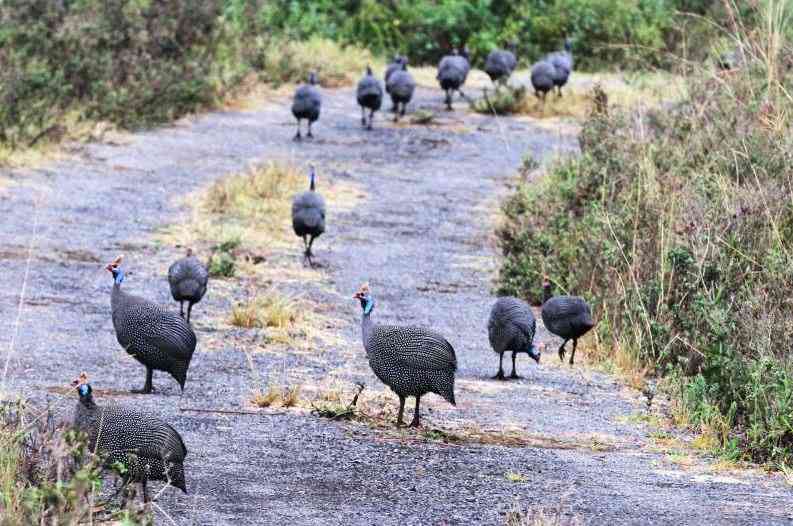
A new study on guinea fowls in Kenya has revealed that, much like humans, animals can experience stress when trying to lead a group.
The research, conducted by The Australian National University (ANU), involved tracking a group of wild guinea fowls for four months at the Mpala research centre in Laikipia.
Using heart monitors and GPS trackers, the researchers observed stress levels among individuals attempting to lead.
The study, published on July 22, revealed that the birds recorded their highest heart rates when trying to initiate group movements, especially when doing so against the majority’s preference.
Associate Prof Damien Farine, a co-author of the study, noted that while many animal groups rely on democratic, “majority rules” decision-making, such leadership attempts can still come at a physiological cost.
“We already have evidence of how this decision-making works, it’s like a voting process,” said Prof Farine.
“Individuals may begin to move away from the group in the direction they prefer, often in search of food. If enough members follow, the rest of the group moves too. But if no one follows, the individual fails and returns to the group,” Prof Farine said.
“The strongest predictor of the direction the group ultimately takes is the option with the most support. Some individuals tend to lead more often, while others follow. We were interested in understanding the consequences of this dynamic,” he added.
Dr James Klarevas-Irby, a co-author of the study, noted that an individual’s heart rate increases when they attempt to lead without gaining enough support.
“It’s most noticeable when they try to do something that few in the group are interested in. Their heart rate spikes even more when their leadership attempt fails,” he said.
For birds that were not leading the group, researchers found that their heart rates were significantly lower compared to those attempting to lead.
“We also discovered that simply moving as part of a group raised the birds’ heart rates, which were noticeably higher than when they moved alone,” said Dr Klarevas-Irby.
He added that the findings were quite relatable to human experiences.
“It’s like when you’re out with a group of friends trying to decide where to eat. You may really want to go to a particular restaurant, but if most of your friends prefer somewhere else, that disagreement can feel stressful.”
Stay informed. Subscribe to our newsletter







